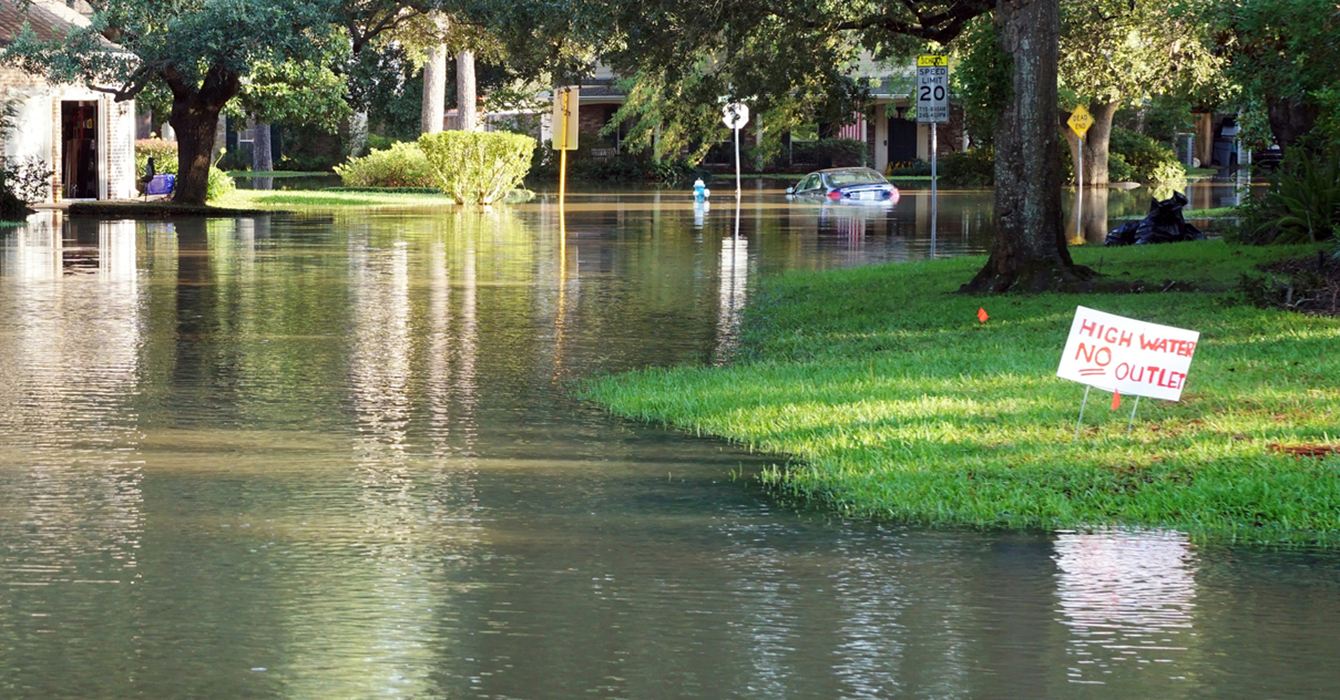We are called to be co-creators with God, said Will Samson, and this means that environmental issues are fundamentally moral problems that require theological solutions.
“If we can really recapture a sense of the church as a community of moral formation, then I think we can begin to address some of the broader issues behind the environmental problems,” he said.
The Seminary Stewardship Alliance, a Blessed Earth initiative, helps infuse care for God’s creation into seminaries’ culture by supporting sustainable practices, advancing scholarship on creation care and facilitating dialogue among schools.
“Our long-range goal would be that the men and women who come out of our seminaries and divinity schools would have care for creation deeply woven into their understanding of the gospel and the way they see the world,” said Samson, the executive director of the alliance.
Leaders of participating seminaries first commit to a covenant written by Blessed Earth founder Matthew Sleeth and others. They then work with alliance staff to create a plan of action unique to their institutions.
Support from the Kendeda Fund provides seed grants for projects such as conducting energy audits, minimizing fossil fuel use and increasing library holdings in eco-theology.
The alliance also sponsors an annual conference as a way to encourage scholarship and curriculum development in creation care.
 Samson is the author of “Enough: Contentment in an Age of Excess” and co-author of “Justice in the Burbs.”
Samson is the author of “Enough: Contentment in an Age of Excess” and co-author of “Justice in the Burbs.”
He spoke to Faith & Leadership about the Seminary Stewardship Alliance, and why Christians have a unique responsibility to care for the earth. The following is an edited transcript.
Q: How do you bring people together into a hopeful conversation about the environment?
I see enough happening in my visits and in the field now to just have a real sense of hope.
One of the reasons we’ve been able to bring a broad group of people together is because we have really focused on the core theological issues at stake and not on the hot-button political issues.
We don’t mind talking about them -- we’re not climate-change deniers or anything. There’s nothing unusual about our beliefs about the environment in terms of the scientific mainstream.
But as an organization, rather than focusing on political solutions to political problems, we really try to focus on theological solutions to fundamentally moral problems.
As a nation, we just consume too much, and that’s really one of the drivers behind things like global warming. If we can really recapture a sense of the church as a community of moral formation, then I think we can begin to address some of the broader issues behind the environmental problems.
If we truly loved our neighbor as ourselves, we wouldn’t throw away as much trash as we do, for example. We wouldn’t have 100-mile-wide trash islands in the middle of the Pacific.
If you look at the group of seminaries that are part of the alliance, it’s a fairly diverse group, from the conservative evangelicals all the way over to neoliberal mainline seminaries.
We feel really blessed and delighted to be able to bring that broad a group together. And I think it’s because we’ve focused on these moral issues as opposed to the political ones.
Q: Do you think that focusing on the moral or theological issues is going to be enough to make a significant difference?
That’s a question I get all the time. It’s even a question I had to reconcile. And the way I’ve reconciled it, and I genuinely believe this, is that we need both. But there are, frankly, some really great groups working on the political dimension.
Bill McKibben and 350.org -- we love what they’re doing. We have participated in the work of ecoAmerica and the American College & University Presidents’ Climate Commitment.
Those are in our circle of friends, and we are their big cheerleaders, but we also recognize that most of those groups, just by the nature of their organizations, are not addressing the moral dimensions.
We really see that as a missing element, and so for us it’s not an either-or; it’s a both-and.
Q: You see this as your niche?
Yes, exactly. And in fact we’ve even heard that from some -- I hesitate to use the term “secular,” but by “secular” I mean organizations that are not primarily seeking a religious conversation -- we’ve heard from them that they’re delighted that we’re doing the work that we do.
One of the great quotes we’ve heard from an environmental activist is, “I can tell people what to do, but you guys are telling them why to do it.”
We really feel this is a missing dimension that we need to bring to the conversation and our religious communities -- our churches and our synagogues and our houses of worship. Our places of faith need to once again become communities of moral formation and begin to shape the moral imagination of their people in a way that is concerned about the environment and the environmental issues.
Q: If your organization had ultimate success in its goal, what would that be?
It’s a little hard to define, because we’ve very purposely and pointedly stayed away from a one-size-fits-all solution. So I would say, more broadly, we measure success in our annual evaluation of each one of the seminaries.
Forty years from now, we’ll be able to look back and decide whether it was enough, but [last year] every one of our schools did something. Duke [Divinity School] added to their library holdings. Gordon-Conwell [Theological Seminary] did an energy audit. Asbury [Theological Seminary] is involved in a large, multiyear project to develop relationships with local farmers and increase the percentage of local food in their cafeteria.
We really want to be able to look at the state of the American seminary and say, “There is movement afoot. Something’s happening.”
In an ideal world, we’d all have fossil-free fuel, and we would eat local food, and we would recycle -- if, in fact, we even had trash. But that’s a long way off.
So rather than overwhelm the seminaries with this huge set of expectations, we’ve instead tried to be coaches, encouragers, catalysts that walk alongside them and say, “How do we help you do better next year than you did this year?”
Q: What do you do to develop leaders in this field?
That really is at the core of what we’re doing. We hope that our seminaries graduate women and men who are going to go out into ministry with a deep concern for God’s creation in a way that is not dualistic, or separated from the other things that they believe about the gospel.
We want them to see caring for God’s creation as deeply intertwined with the gospel and as a message that they’re going to bring to every one of their congregations.
But it’s also why we stay away from a one-size-fits-all solution. Just like seminaries are diverse, churches are diverse.
There are rural and suburban and urban churches, and they’re all going to deal with different issues.
Our long-range goal would be that the men and women who come out of our seminaries and divinity schools would have care for creation deeply woven into their understanding of the gospel and the way they see the world.
Q: So that the message would go from seminaries to the pastors to the congregations, and then presumably to the individuals that make up those congregations as well?
Exactly, exactly. And I would add to that, also then to the communities with which those congregations engage. We’ve been very influenced by Richard Mouw’s work at Fuller that we need to represent the gospel in a way that engages the common good.
And so it would be our desire that they would be involved in forming their communities morally around these issues of care for the environment, living sustainably and resiliently, and all these other really important values.
Q: Do you think that the church has a unique role to play?
I do. It’s broadly true of religion, but I think part of our narrative is that we were created by God and then called to continue in the advance of creation, called to be co-creators with God.
And so it seems to me that the Christian narrative has a lot to say in the environmental conversation. Unfortunately, it’s been often held captive by a narrow view of the Christian narrative which suggests that the world’s going to end soon, and so therefore why care?
That’s a very recent and very myopic view. If you look through the life of the church, throughout the history of the church, there is a much stronger and longer stream of hope for the future and of the belief that we need to care for creation than there is for this modern industrial eschatology that says, “It’s all going to burn, so why care?”
Q: I suppose there’s also the argument that humans were given domination over the earth.
This is just a bad reading of the text. I’ll quote Matthew Sleeth here, which is that I’ve heard him illustrate stewardship before by saying that he gave the stewardship of his children to the school system when he sent them to school, but he didn’t expect them to come back beat up and dumber.
And I think, in the same way, stewardship implies improvement. And so it seems to me that as we seek to live into the Christian narrative, and teach and encourage others to live into their narrative, that we should be very much focused on concepts of stewardship over and against dominion or domination, and that that’s a better reading of the text and a better understanding of our role as Christians in the world.
Let’s just simply take Christ’s words that we’re to love our neighbor as ourselves. That would pretty much change most of what we do in the environmental sphere.








